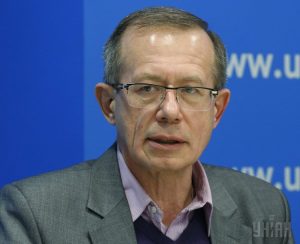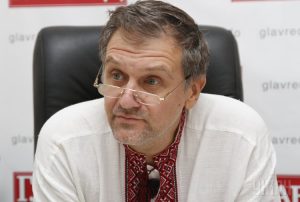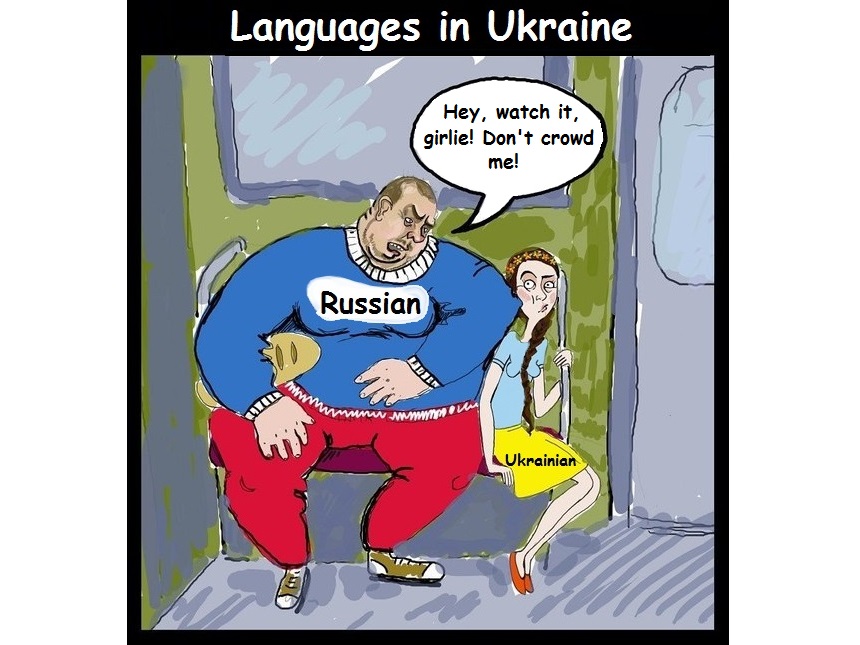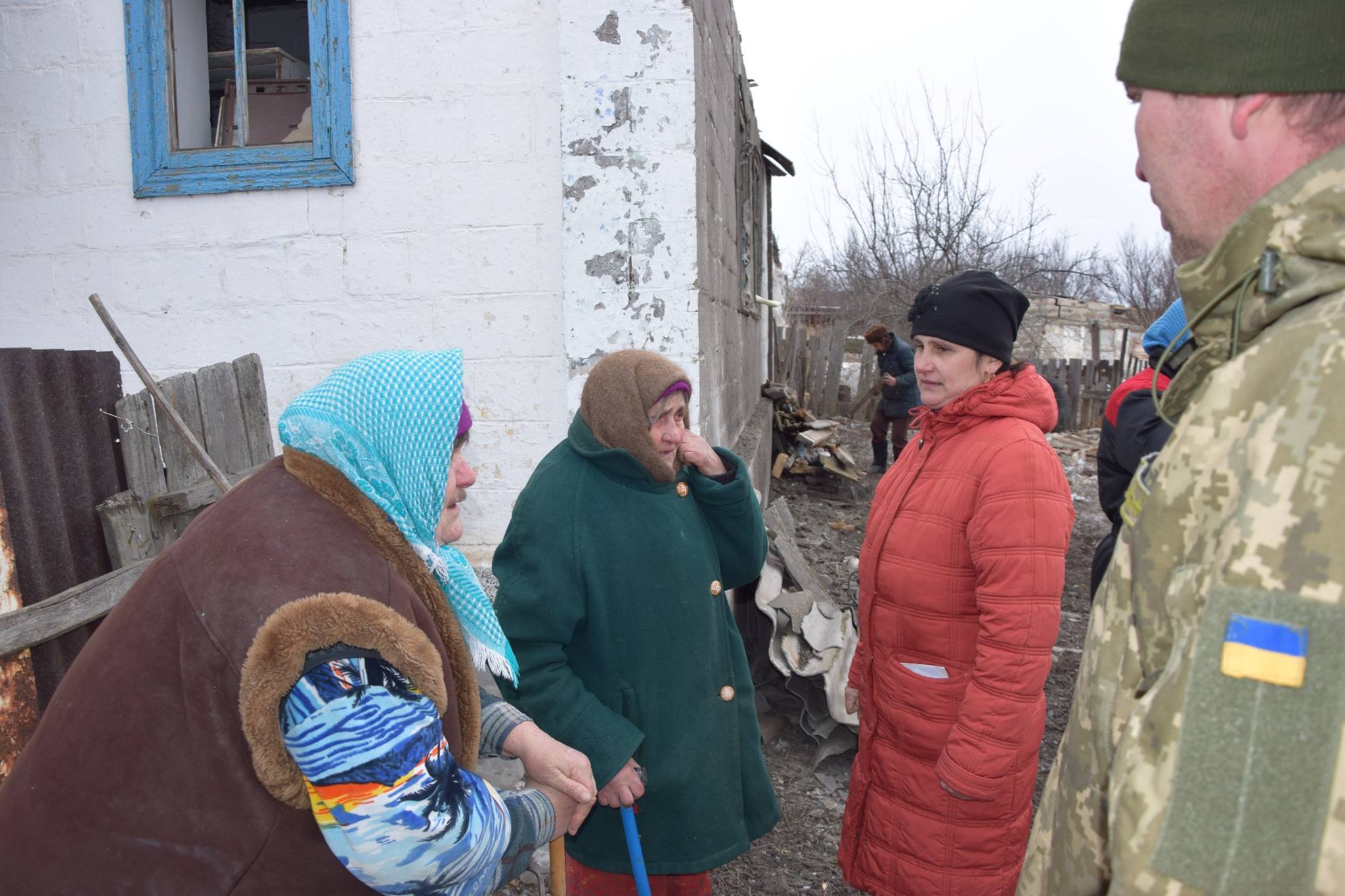On July 16, after an emotional appeal by President Poroshenko, the Verkhovna Rada voted to send the proposed constitutional amendments to the Constitutional Court.
This decision by parliament was preceded by a storm of emotion primarily because revisions had been made to the proposed bill on amendments to the Constitution that dealt specifically with the paragraph on the features of local self-government in certain districts of the Donetsk and Luhansk oblasts.
In the July 1 version of the law, this paragraph appeared in the final and transitional provisions of the law. At that time it was not yet a matter of incorporating the “paragraph about Donbas” into the Constitution itself. However, on July 15, a “revised” draft bill was presented to the Verkhovna Rada, where the paragraph on self-government of the occupied Donbas territories was already placed in the section of the law that proposes changes to the transitional provisions of the Constitution. Accordingly, in Section XV of the Constitution, “Transitional Provisions,” the following paragraph is supposed to appear: “18. Specifics of the realization of local self-government in certain districts of the Donetsk and Luhansk oblasts will be defined in a separate law.
Critics of the bill on amendments to the Constitution complain that the “Donbas clause” has appeared because of pressure by the West and Russia on the Ukrainian government. Poroshenko denies it. But it is noteworthy that on July 15, the day when the changes to the law were made, the US Assistant Secretary of State Victoria Nuland came to Kyiv and was present during the voting. In particular, the Vice Speaker of the Verkhovna Rada, Victoriya Syroyid, reported on her Facebook page that there was “fierce pressure on the national deputies by the international community for ‘DNR’ and ‘LNR’ to obtain special status in our Constitution.”
However, others emphasize that the adoption of these amendments to the Constitution would only be a diplomatic step that cannot harm Ukraine’s sovereignty and would simply demonstrate that Ukraine is abiding by the Minsk agreements despite the fact that Russia and its militants are sabotaging these agreements.
TSN.ua surveyed political scientists and lawyers on the possible threats represented by these amendments that our Western “friends” are insisting on:
Oleksiy Haran, Professor of Political Science, National University of Kyiv-Mohyla Academy
If this (amendment) is included in the transitional provisions of the Constitution then I don’t see a particularly serious threat (if, for example, it were placed in the chapter on local self-government).
Generally, of course, everything that pertains to relations with Russia and the Russian-supported militants represents a danger when we design it even in the form of the law. But here the threat is mitigated because, first, the transitional provisions are not permanent text, and, second, because there is reference to the law. And a law can be changed. By the way, we have changed it already when we stipulated that elections would take place only after the withdrawal of Russian armies and the disarmament of the illegal groups. Additionally, the conditions for holding elections are specified in the Minsk agreements. Demands were made on us to establish the provision on the special rules for the self-government of certain regions in the Constitution. We did that but did it in the Transitional Provisions of the Constitution and with reference to the law.
Naturally, these are all unpleasant matters representing certain threats. However, I think it is acceptable in this form. Especially when compared to what the Russians demanded, who wanted us to add this text on special status into the very body of the Constitution and clearly state what we are granting them, what special rights. Here the wording is sufficiently vague. In this form we have the possibility of using it in diplomatic maneuvering to show that we are carrying out the Minsk agreements.
Serhiy Tolstov, Director, Institute of Political Analysis and International Studies
 If this is special status then certainly in the future all further changes will have to refer to the fact that specific laws operate in the Donbas and that there are certain specific features of government. On the other hand, for example, I do not foresee the possibility of regaining Ukrainian control over these Donbas territories in the near future.
If this is special status then certainly in the future all further changes will have to refer to the fact that specific laws operate in the Donbas and that there are certain specific features of government. On the other hand, for example, I do not foresee the possibility of regaining Ukrainian control over these Donbas territories in the near future.
Naturally, it is believed that all specific questions related to the special status will be governed by Ukrainian laws, which are adopted, approved, remain in effect, and, if necessary, may be suspended. This way, when it comes to formal sovereignty, Ukraine may adopt any laws and the Verkhovna Rada may determine the content and interpretation of these questions pertaining to special status. In practice, Ukraine does not control these territories and I don’t believe that it will regain control over them.
On the other hand, Merkel and Hollande apparently reached an agreement with Putin and persistently argued that Poroshenko had to do this. Nuland advised the Verkhovna Rada factions to do this and we can see the result. Why is this being done? Perhaps to demonstrate that Ukraine is fulfilling certain provisions of the Minsk agreements in advance without waiting for the ceasefire and also perhaps to be able to say later that Russia, as the guarantor of the implementation of the Minsk agreements, is not performing its role, is disrupting the implementation of the agreements and therefore that sanctions need to continue. Perhaps there is such a plan.
Oleksandr Merezhko, Professor of Law, Kyiv National Linguistic University
 At first glance, the changes to the Constitution deal with purely technical issues. The rights of local self-government are being expanded. The basic principle is that local issues need to be decided on a local level. A new institution — the prefects — is being introduced that is to monitor the compliance by local authorities with the Constitution and the laws of Ukraine. With the help of this institution, the president strengthens his control over local authorities. The territorial unity and integrity of Ukraine is emphasized. In my opinion, these changes do not represent a threat to the territorial integrity of Ukraine.
At first glance, the changes to the Constitution deal with purely technical issues. The rights of local self-government are being expanded. The basic principle is that local issues need to be decided on a local level. A new institution — the prefects — is being introduced that is to monitor the compliance by local authorities with the Constitution and the laws of Ukraine. With the help of this institution, the president strengthens his control over local authorities. The territorial unity and integrity of Ukraine is emphasized. In my opinion, these changes do not represent a threat to the territorial integrity of Ukraine.
However, the Constitutional Court may not agree with the proposed amendments. As a basis (for their decision), they can use Article 157 of the Constitution of Ukraine which states that the Constitution cannot be changed if there is a war or an emergency situation. And, in fact, it exists.
Poroshenko agreed to push through the changes to the Constitutions unwillingly. He simply has no other choice. Our allies probably are insisting on it . All this is, or course, the continuation of the “dirty peace” that began with the Minsk agreements. However, there is probably something else behind all of this that we can’t see and that we can only guess or speculate about.
My hypothesis is this. The West led by the United States has seriously taken up the issue of dismantling Putin’s empire. But this takes time. One way to gain time is by the careful observance of the letter of the Minsk agreements so the Kremlin has no formal arguments left against the “freezing” of the conflict. So for us and the West it is important to gain time at any price, including at the cost of amending the Constitution. It will take some time and Putin’s empire will collapse. And then we can easily return to the former Constitution, especially when the formal legal argument for cancelling the changes remains: these changes were made during the actual state of war.









